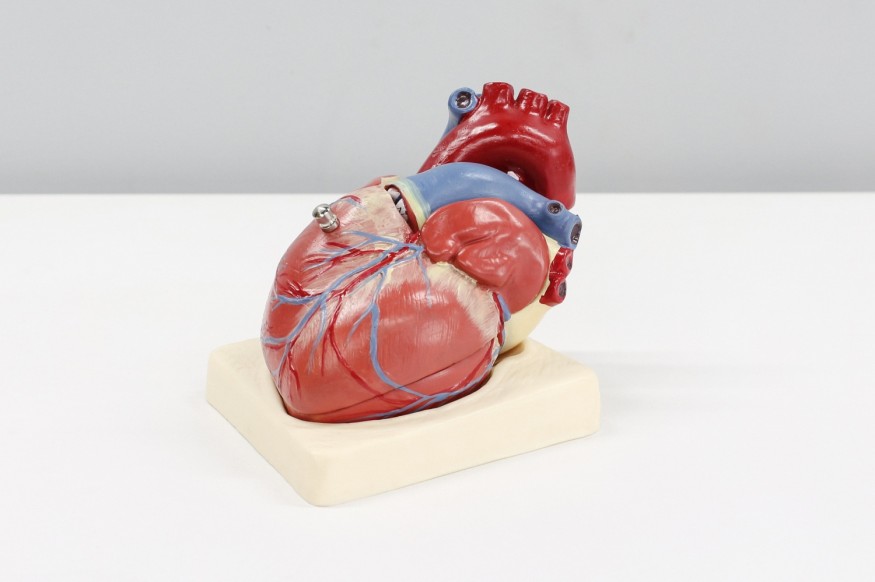
University of Ottawa Faculty of Medicine scientists suggest that a spritz of gold and peptides on a damaged heart could potentially provide minimally invasive treatment. According to Phys.org, the cutting-edge technology could offer on-the-spot repair for those with cardiovascular diseases.
The research was led by Associate Professors Dr. Emilio Alarcon and Dr. Erik Suuronen from the university's faculty of medicine. They said that using customized nanoparticles of gold offers tremendous therapeutic potential that could save many lives, especially since heart diseases are the leading cause of death worldwide.
Spray-On Technology Using Gold Nanoparticles Offers Therapeutic Potential for Cardiovascular Diseases
Gold Nanoparticles in Heart Disease Treatment
Scientists have previously found that gold p[articles have unusual properties and are chemically reactive. These nanomaterials have been used in the past in a wide range of technologies that has also become an area of intense interest.
According to a 2018 paper published in Frontiers in Physiology, gold nanoparticles in the treatment of heart diseases have been gradually proven to be one of the most promising strategies because of their advantageous ability to carry drugs due to its high area-to-volume ratio and it can accurately deliver therapeutic drugs to targeted diseased tissue.
On the other hand, scientists also believed that the mechanism for this double-enhanced delivery of existing drugs can still be improved as many puzzles are yet to be solved. More so, it has been the goal of scientists to conduct clinical trials on gold nanoparticles for heart disease treatment after experiments are carried out on a variety of heart diseases in animal models.
ALSO READ: Scientists Use Nanoparticles to Kill Bacteria Hiding in Human Cells
Customized Gold Nanoparticles Could Be Used in Bypass Surgeries
In the paper titled "Nanoengineered Sprayable Therapy for Treating Myocardial Infarction," published in the peer-reviewed journal ACS Nano, researchers highlighted an approach that might be used in conjunction with artery bypass surgeries.
Spray of tiny particles of gold can potentially treat heart disease, research suggests: Could a spritz of super-tiny particles of gold and peptides on a damaged heart potentially provide minimally… https://t.co/mlKorgWR45 | @physorg_com #Nanomaterials #Nanotechnology #Nanotech pic.twitter.com/4mH7YC0ark
— NanoTrac Technologies (@nanotrac) March 16, 2022
News Medical Life Sciences reported that the team sprayed on the hearts of lab mice using low concentrations of peptide-modified gold nanoparticles. The material was evenly painted on the surface of the heart in just seconds with the help of a miniaturized spraying apparatus.
Gold nanoparticles are so tiny that they can not be seen by the human eye. The customized gold nanoparticles with peptides sprayed on the hearts of the lab mice resulted in an increase in cardiac function and heart electrical conductivity with no off-target organ infiltration because of its small size.
"That's the beauty of this approach. You spray, then you wait a couple of weeks, and the animals are doing just fine compared to the controls," the news outlet quoted Dr. Alarcon. The findings also suggest that gold nanoparticles are highly effective, and their application is far simpler than other regenerative approaches for treating heart diseases.
The team is now looking forward to adopting this novel technology to minimally invasive procedures that will expedite testing in large animals, like pigs and rabbits, to validate the results from the mice models.
Check out more news and information on Nanomedicine in Science Times.











